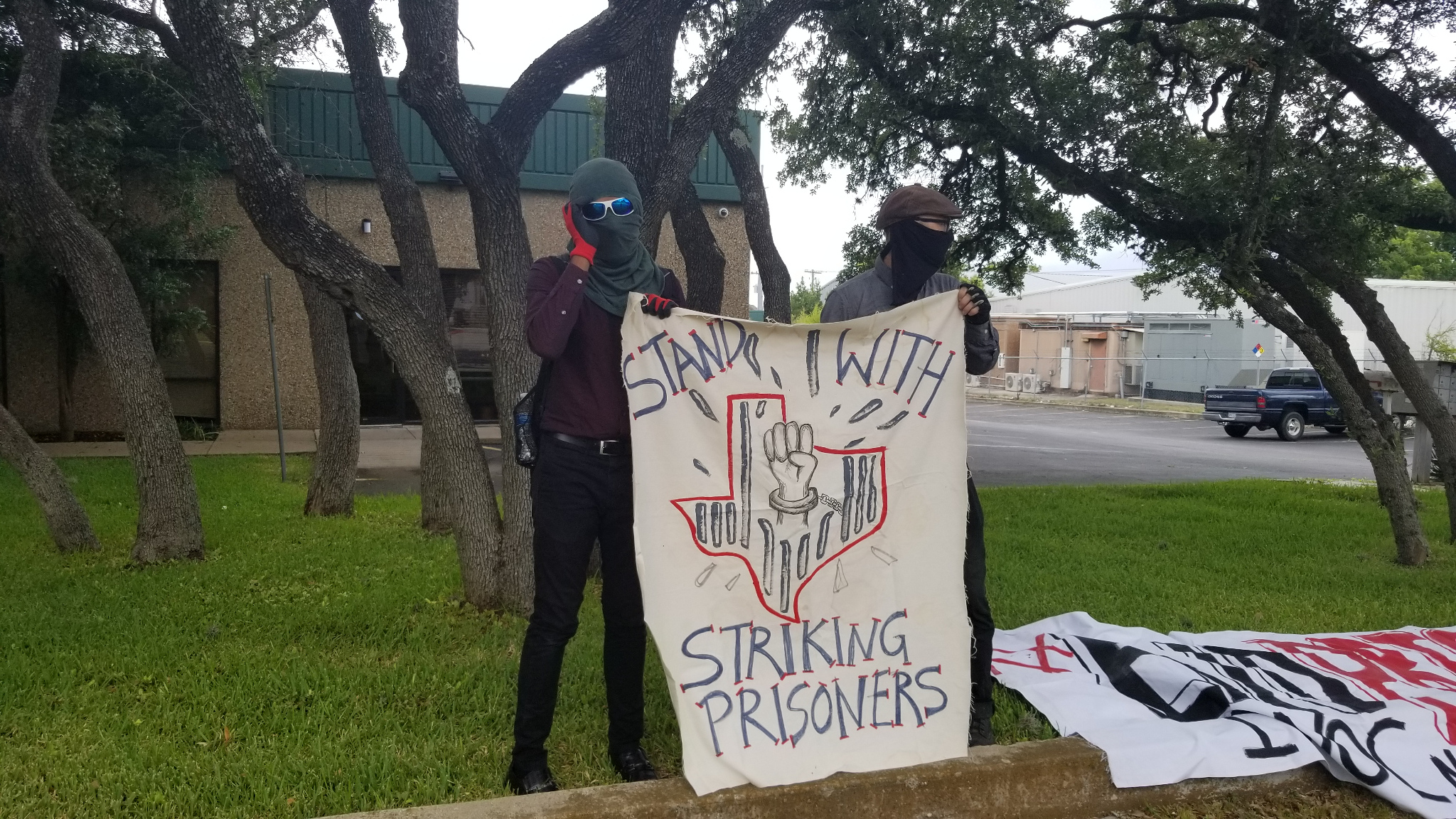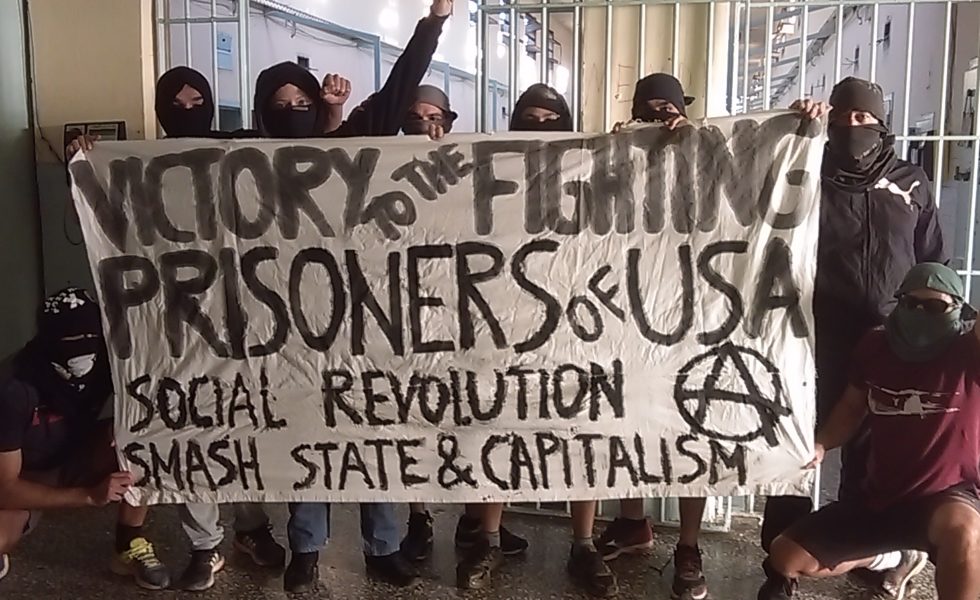Last week, Austin anarchists marked Juneteenth a day early with a protest against modern-day slavery.
Juneteenth, honored on June 19 each year, marks the day that news of the Emancipation Proclamation reached slaves in Texas. However, the 13th Amendment to the Constitution legalizes unpaid or shockingly underpaid slave labor by those behind bars. The Juneteenth prison protest in Austin targeted two offices operated by the Texas Department of Criminal Justice. Around dawn, activists scaled flag poles at the Austin offices of the TDCJ parole board to replace the U.S. and Texas flags with an anti-prison slavery banner. Later, more anarchists (and this reporter) gathered to protest at a showroom where corporations come to hire prison labor.
“ Texas is one of the few states where prisoners receive no paid compensation for their labor, yet are expected to afford commissary items, $100 medical copays, and post-release expenses,” a representative of the group told me.




